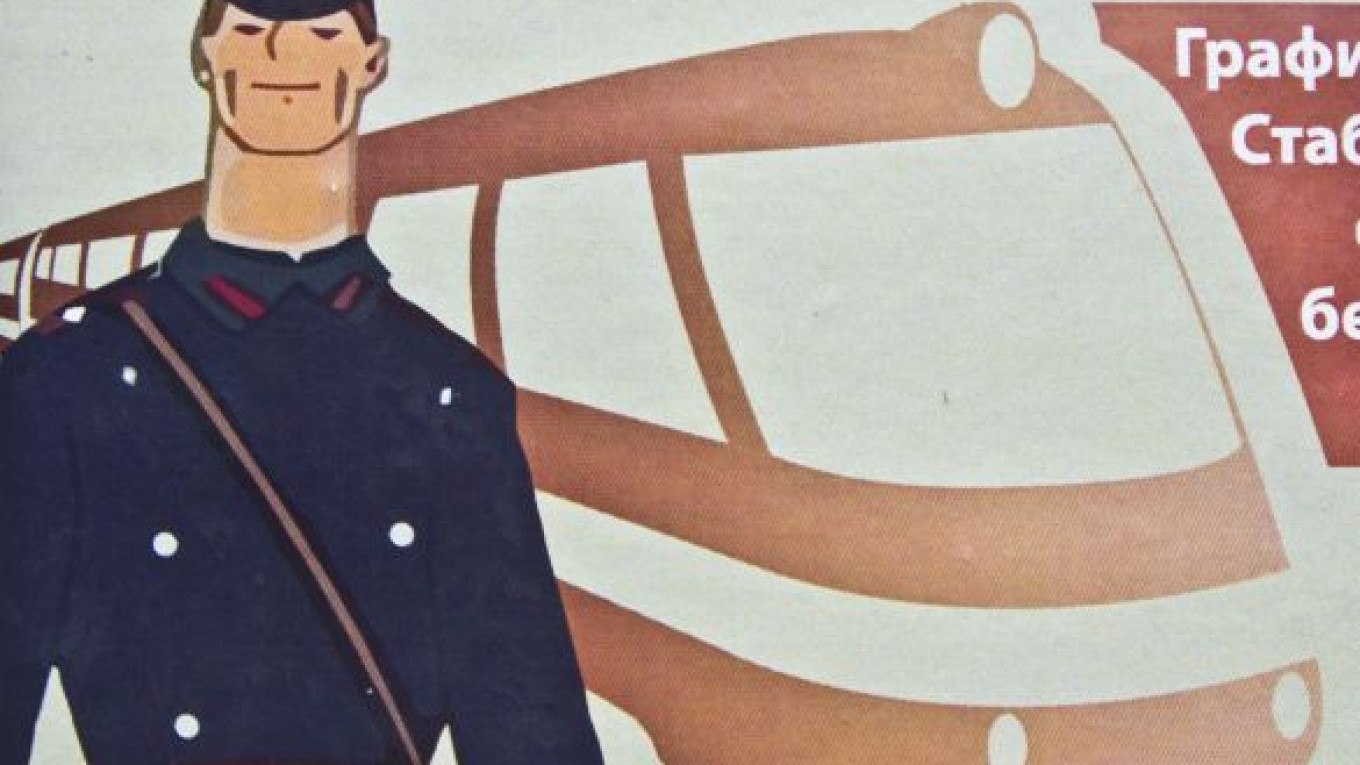For some he was an author of the Soviet national anthem, which he rewrote several times to please the ruling authorities; for others a beloved children's poet who created a poem about a friendly police officer and many others.
Sergei Mikhalkov, who would have turned 100-years-old last week, had many faces, yet his son, acclaimed film director Nikita Mikhalkov, has stressed that his father was a children's poet first of all.
Poet Sergei Mikhalkov's birthday was celebrated in the Bolshoi Theater last week with many guest-artist performances. City authorities have also announced plans to erect a monument to him on Povarskaya Ulitsa, where he lived most of his life.
Another celebration, which took place in Nikita Mikhalkov's estate in Nikolina Gora near Moscow, was attended by President Vladimir Putin, who has named the Soviet-era anthem, written by the senior Mikhalkov, one of Russia's national songs.
"[Sergei] Mikhalkov is a whole epoch and a life of the country. His views might be looked upon differently, but the fact is, he was an outstanding man," Putin said about Mikhalkov, adding that the circulation of the poet's books had surpassed 300 million copies.
"A hundred years more will pass, and he will remain in the memory not as an author of anthems, but as a children poet," Nikita Mikhalkov told visiting journalists during the large family gathering last week to celebrate his father's birthday.
An author of many children's books, Mikhalkov is perhaps best known as the author of "Uncle Styopa," a poem about a good-natured, extremely tall police officer who encourages children to behave well and protects them from hooligans.
Written in 1936, the poem became a national bestseller in the former Soviet Union while "Uncle Styopa" became the household name for a good police officer.
"He created his own character, his own Harry Potter, through an ideological one," poet and critic Vlad Vasyukhin said about Mikhalkov.
Ironically, some Russian film critics have said features of Uncle Styopa were even used by actor Arnold Schwarzenegger when he had to play a well-built Soviet police officer in the Hollywood film "Red Heat" in 1988. In another interesting detail, Sergei Mikhalkov himself was the father of Hollywood director Andrei Konchalovsky, who released the police drama "Tango and Cash," featuring Sylvester Stallone, in 1989.
Now the city police want to improve their tarnished image by placing a cartoonish image of Uncle Styopa on the recruitment leaflets in the metro. Still, senior police officers looked suspicious when the daily Metro newspaper asked street cops to read lines from the poem. Only one police officer agreed to read it out loud while others were stopped by their superiors, the article said.
The officers from the Emergency Situations Ministry in the Arkhangelsk region celebrated Mikhalkov's anniversary by reading the poem aloud to children.
"When children see that adults read his poetry with satisfaction, maybe they will view the author through different eyes," Andrei Spiridonov, head of the tutorial department in the emergency ministry, said in an interview on the ministry's website.
Mikhalkov's legacy, however, remains controversial for some because he is seen as the author of the words of the Soviet and the new Russian anthems. Despite the well-recognized music tunes, the liberal opposition has widely criticized the return of the anthem, which it has called "Stalinist" since it features once-glorified Soviet dictator Josef Stalin.
While the controversial phrase was omitted after his death, the anthem, praising the role of the Communist Party, was used until the dissolution of the U.S.S.R. In 2000, Mikhalkov wrote new words for the hymn, using the word "God" in one of the lines.
Mikhalkov's participation in Soviet officialdom also included his attacks against the dissident poet and writer Boris Pasternak, after the latter published the novel "Doctor Zhivago" in the West in 1958. He has also attacked writer Alexander Solzhenitsyn, calling him a person "full of evil toward his countrymen," after the writer was awarded the Nobel Prize in Literature in 1970.
"While his poetry for children was good, he was a very low figure as a politician, bureaucrat and a public figure," journalist and history buff Mikhail Vinogradov said about Mikhalkov in a Facebook comment.
But critic and poet Vasyukhin said it remains to be seen whether Mikhalkov's legacy can further endure.
"He is a talented poet, but he was a Soviet poet whose prose was much connected with the realities of that time," Vasyukhin said.
Contact the author at [email protected]
A Message from The Moscow Times:
Dear readers,
We are facing unprecedented challenges. Russia's Prosecutor General's Office has designated The Moscow Times as an "undesirable" organization, criminalizing our work and putting our staff at risk of prosecution. This follows our earlier unjust labeling as a "foreign agent."
These actions are direct attempts to silence independent journalism in Russia. The authorities claim our work "discredits the decisions of the Russian leadership." We see things differently: we strive to provide accurate, unbiased reporting on Russia.
We, the journalists of The Moscow Times, refuse to be silenced. But to continue our work, we need your help.
Your support, no matter how small, makes a world of difference. If you can, please support us monthly starting from just $2. It's quick to set up, and every contribution makes a significant impact.
By supporting The Moscow Times, you're defending open, independent journalism in the face of repression. Thank you for standing with us.
Remind me later.


